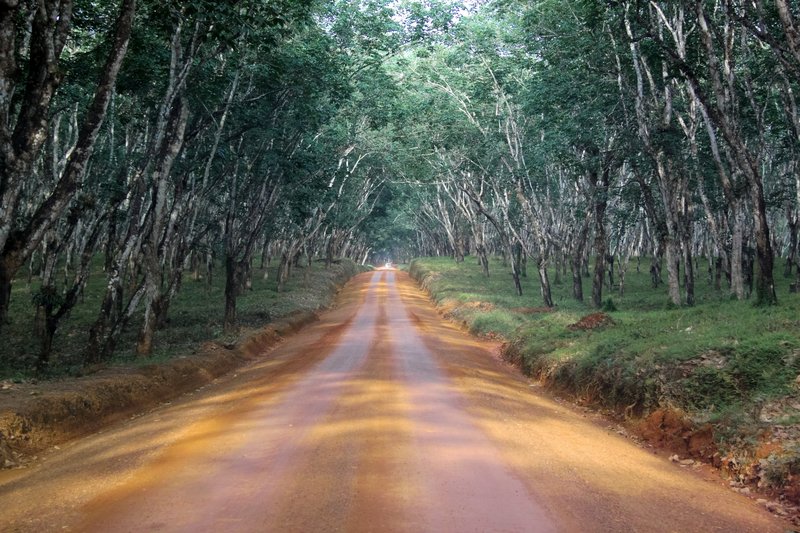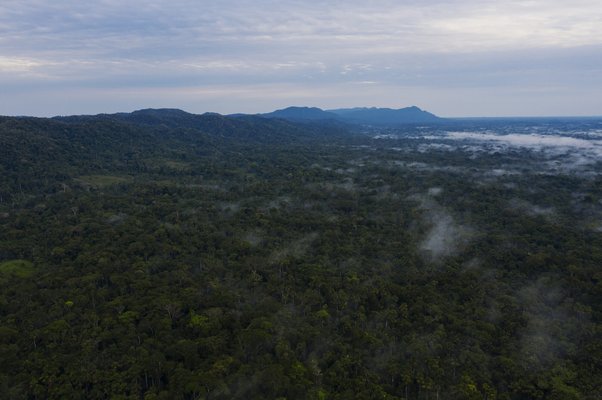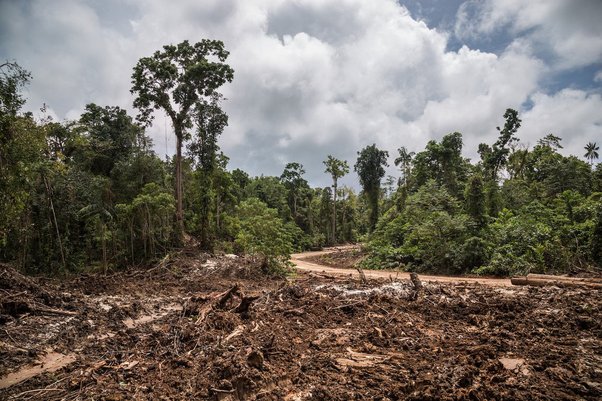The EU’s anti-deforestation law (EUDR) has been delayed by a year – but the fight to protect nature, people and the European Green Deal goes on

The EUDR was meant to control the sale of deforestation-risk goods, like soy, palm oil and rubber, on the EU market from the start of 2025. Global Witness
The EU has decided to delay its landmark anti-deforestation law, which will now see it enter into effect as of 30 December 2025 – a year later than originally planned.
This is a significant blow for the fight to protect the world’s climate-critical forests and those who depend on them, but it could have been much worse.
What is the EUDR and how could it protect forests and people from deforestation?
Back in 2022, lawmakers struck what should have been a final deal on the EU Deforestation-free Product Regulation (EUDR).
We celebrated their landmark achievement, which has helped to drive forward global progress towards a world in which consumer products are not linked to forest destruction or the violation of Indigenous Peoples’ rights.
The law achieves this by ensuring major deforestation-risk commodities cannot be sold on the EU market if they have been sourced from deforested or degraded wooded lands after 31 December 2020.
The list of products covered is comprehensive: cattle, cocoa, coffee, palm oil, soy, rubber and wood, as well as related products including charcoal, printed paper, palm oil derivates, preserved meat, leather, chocolate and furniture.
The need remains urgent. The EU’s consumption of products produced on deforested land is a significant driver of forest loss.
We’ve previously shown how West and Central Africa’s tropical forests are under threat from European rubber imports, and this year revealed that French imports of cow hides used to make of collagen are driving major deforestation in Paraguay.
What about the European Green Deal?
Normally, once the EU agrees a law, after lengthy negotiations within and between national governments, Members of the European Parliament (MEPs) and the European Commission, it comes into force on an agreed date.
However, the political weather in Europe has changed dramatically in the two years since the EUDR was signed into law. It was originally intended to apply to large traders from the end of 2024.
Now, elections in major member states like Italy, Germany and the Netherlands have seen the European Council shift away from the climate agenda.
A new right-wing majority European Parliament has pushed hard to undo the legacy of a package of environmental and climate laws agreed following the 2019 European elections, known as the European Green Deal.
Some of the first signs of trouble arose at the start of 2024, when national governments reneged on a deal they’d already signed off that would have obliged major European companies to ensure they respect human rights and the environment in their global operations.
These governments renegotiated the EU law, known as the Corporate Sustainability Due Diligence Directive (CSDDD), substantially weakening it by slashing the number of companies that would be covered and exempting some of the riskiest sectors, such as waste management.
In 2023, for example, we showed the French waste management giant Veolia purchased a “toxic” landfill in a protected area in Colombia and apparently failed to address the risks faced by environmental defenders who spoke out against its environmental and health impacts.
How was the EUDR postponed?
Fast forward to late 2024 and this time it was the European Parliament who drove efforts to delay the EUDR by a year with a proposal that gives companies another 12-months to trade deforested goods in the EU.
We joined over 250 groups from 40+ countries, including civil society in key producer nations like Brazil and Indonesia, to oppose any attempts to delay or weaken the law.
With business and finance voices also supporting the EUDR, we helped to narrowly defeat some destructive amendments tabled by the European People’s Party that would have allowed deforestation-linked commodities to enter the EU without any checks.
Thanks to this pushback, only the 12-month delay to EUDR was confirmed. But all eyes have now turned to the potential threat of a new “omnibus law” to roll back other key legislation like the CSDDD.
What next for EU deforestation regulation?
While we’ve avoided the worst-case scenario for the EUDR, the impact of this delay remains significant.
Another year of deforestation-linked trade could drive at least 150,385 hectares of deforestation, releasing carbon emissions equivalent to 188 million long-haul flights, according to our analysis cited by Green MEPs.
The message from this group of MEPs to the European People’s Party is clear: “Stop fanning the flames of climate catastrophe.”
And given how rapidly the political situation has shifted in Brussels, we must now fight for the protections provided by the CSDDD, and cannot rule out further attempts to renegotiate and weaken the EUDR and Green Deal in 2025.
Next year, we will continue to campaign to hold the EU to account and push for these vital laws to be enforced as planned, with the financial institutions bankrolling deforestation included too.


